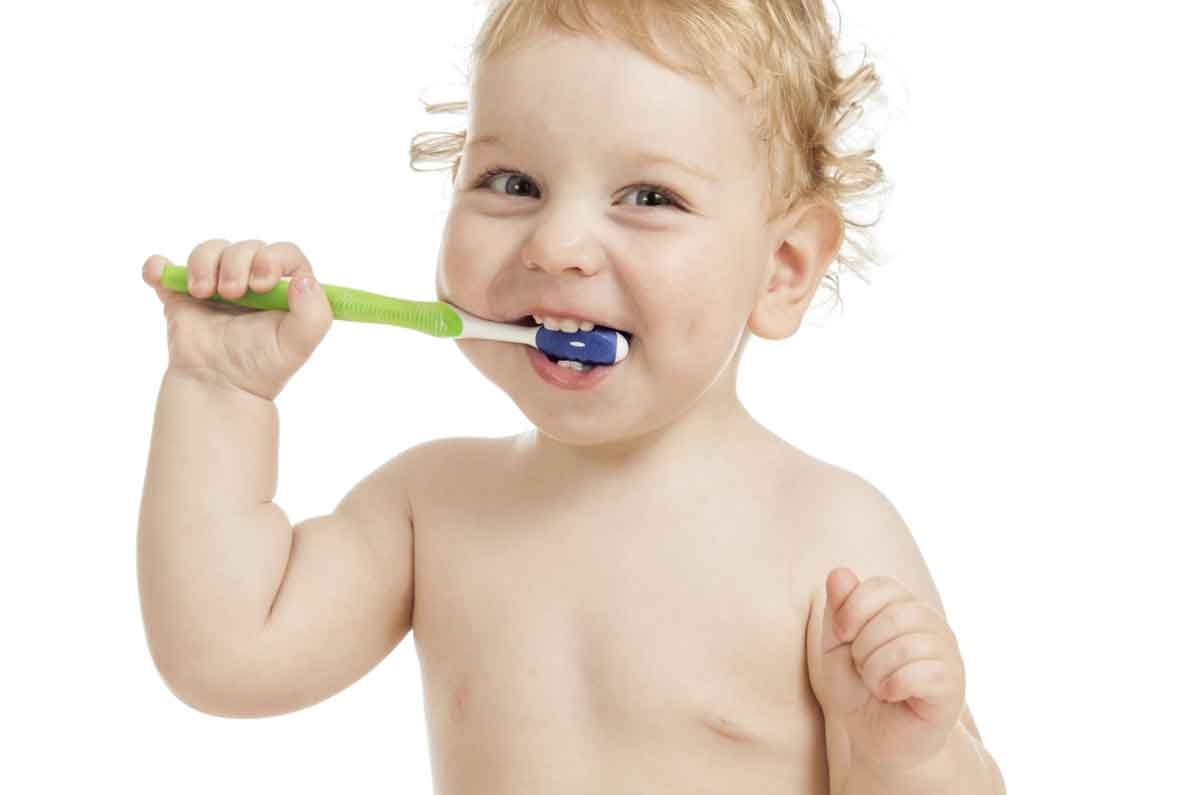Primary or “baby teeth” usually start to erupt or come in at around 6 months of age. The anterior or “front teeth” are the first to pop through. A child’s reaction to this process can vary greatly. Restlessness, crying and red, rosy, cheeks are common and may be accompanied by a low grade fever. Chewing on a “teething ring’” may give some relief. Make sure that what they chew on is made of an “approved” material and that it is big enough to avoid choking. A chilled teething aid may prove to be even more beneficial. These teeth will continue to pop up during the first 3 years of life.
The first visit
First dental child’s visit to us in Torrevieja should be at around 2 years of age. This visit is kept short with a ride up and down on the dental chair and hopefully fun for the child. If anything out of the ordinary is noticed before the age of 2, definitely bring the child in for a quick look. We recommend bringing them in as an “observer” during your adult checkup, just to get them comfortable with the office.
Children are very perceptive and will pick up on your phobias. If you are a “dentalphobe” try your best not to let your child pick up on this or it will make them hesitant, especially at their first appointment. You should play their appointment up to be a fun experience, possibly with a “reward’ at the end.
Our wonderful odontopediatric have many animated “going to the dentist” books for children which can give them a “heads up” as to what to expect during the visit.
In Lucrecia Botella there´s a long way and believe it or not, most children actually enjoy coming to the dentist.
Importance of primary teeth
Primary teeth are very important and therefore, important to keep until they are replaced by permanent teeth. Five or six years of age, is when children start losing their front baby teeth. The last primaries usually last until eleven or twelve years of age. Our children’s´ parents on Torrevieja will occasionally ask us whether “it is worth fixing a baby tooth”.
We always answer that “unless the tooth is soon to be lost naturally we would recommend repairing and keeping the tooth if possible.” If a primary tooth is lost prematurely, the space it was saving for the permanent tooth will be lost and the permanent tooth will be “squeezed out”. Occasionally the opposite situation arises where a primary tooth hangs on too long and won’t fall out on its own, preventing the eruption of its permanent replacement. In this case the primary tooth is removed by the dentist. Nine times out of ten the baby tooth will exfoliate or “fall out” on its own. A child’s response to the loose tooth is a very personal thing. Some are working on removing it at the first indication that it is loose. This is quite often in response to an older sibling losing their teeth or a classmate. The promise of a visit from the tooth fairy can be a big motivator. On the other hand, some children will not have any part in helping to loosen the tooth. Again, the tooth will usually fall out on its own.
Cleaning our child’s teeth
Due to the importance of primary teeth, keeping them clean and healthy is our mission. Cleaning should start as soon as our children see a tooth emerging. This is usually a front lower tooth. The simplest technique is to wipe the teeth and gums with a clean, wet washcloth.
In Lucrecia Botella recommend doing this at the start of bath time. Once a tooth has erupted a small head toothbrush and dab (grain of rice size) of fluoridated toothpaste should be used. The amount of paste is important as too much fluoride can be harmful. We recommended to use a non-fluoridated paste until the child is able to fully rinse. Letting a child start the brushing process and the parent finishing is fine but the parent must stay in charge of placing the toothpaste on the brush to assure the correct amount is used.
Once a child can tolerate and hopefully enjoy a battery powered “spin brush”, we highly recommend using one. Primary teeth are usually spaced and flossing is not necessary but where the teeth are tight and touching one another, flossing is important. Many flossing aids are available. The key to making brushing and flossing a positive experience is to keep things simple and try to add some fun to the routine.
Come and visit us in Torrevieja.
Check our dental services.
We´ll enjoy with your children. Let us draw a smile in there faces.



